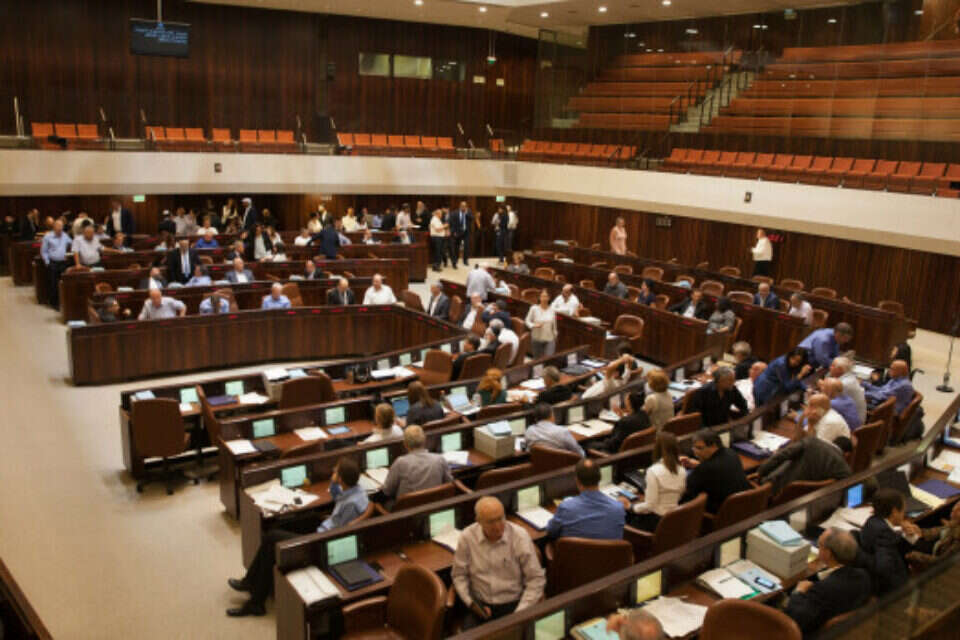Israel's parliaments make changes to the basic laws about five times each year on average, a rate that indicates constitutional instability - according to a new study by the "Purpose Institute", published in "Israel Hayom" for the first time.
The study found that most of the changes are made in the Knesset after the elections, but before the government was formed - "a losing practice of changing the rules of the political game while the game is being played," according to Dr. Elad Gil, senior fellow and head of research at the institute.
According to the study, since the first Basic Law (Basic Law: Knesset) was enacted in 1958 until today, 139 changes have been made to the Basic Laws in Israel, and more than half of the changes focused on the Basic Laws of the Government and the Knesset.
This is an average rate of 2.15 changes per year - which jumped in the last eight years to 4.75.
"Problematic Pathology of Changes".
The voting board in the Knesset, photo: Dodi Vaaknin
The research findings show that the absence of such a constitution calls into question any constitutional change.
For example, the current government and the Knesset are promoting the Levin reform in the justice system, but the next ones could easily cancel it.
"The frequent changes harm the progress of the State of Israel in the direction of a stable and rigid constitution," states Dr. Elad.
A worrying trend
Another figure provided by the study is the date of the change.
If it could be expected that changes to the Basic Laws would be made throughout the term of the Knesset, after staff work in the government and significant litigation in the Knesset - then in practice, since 2014, about half of the changes have been made close to the establishment of the government, before or after it.
This was the case, for example, when the Basic Law was changed to allow Derai not to appear before the Election Commission, in deciding whether his conviction was due to defamation.
According to Dr. Elad, "The blame does not fall on one government or another.
The data points to a problematic pathology, which has manifested itself mainly since 2014. From this year onward, there has been a release from any inhibition that requires a proper political regime, and a mobilization of all parts of the coalition - in every coalition since then - in favor of tilting the rules of the game, so that they serve the needs of the incoming government."
Injury on the way to a stable constitution.
Dr. Elad Gil, photo: Gitel Peres
In a comparison between Israel and ten different countries in the West, a gap of more than two times was found in the rate of changes to the basic laws in Israel compared to them.
While Israel made an average of 21.5 changes per decade, in Germany there was an average of 8.6, in South Africa 6.8 and in Ireland 4.5.
In Canada, France and Italy only two changes were made, in Portugal and the USA there was only one change, and in Greece and Spain 0.9 and 0.45 changes were made on average per decade.
Dr. Elad's conclusion: "The possibility and the frequent use of force to change the basic laws show the need to pass a 'basic law: the legislation', which will stop the alarming trend of the pace of changes."
were we wrong
We will fix it!
If you found an error in the article, we would appreciate it if you shared it with us









